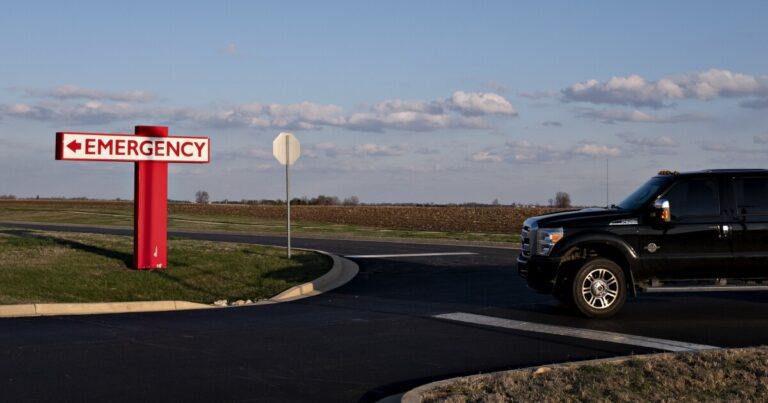Senate Republicans are crafting provisions to provide funding for struggling rural hospitals in order to resolve an impasse on Medicaid changes that is one issue holding up passage of President Donald Trump’s tax-cut bill.
Senate Majority Leader John Thune told reporters on Wednesday he is working with members of his party on a solution that would ensure financially vulnerable rural hospitals aren’t threatened by the legislation’s cuts to the Medicaid health program for low-income and disabled Americans.
Lawmakers are looking to create a special fund that rural hospitals could tap to blunt the effect of the legislation’s Medicaid reductions, Senator Bill Cassidy of Louisiana said.
Quick resolution to senators’ concerns about Medicaid cuts in the bill will be crucial for Republicans to meet their self-imposed goal of voting on Trump’s signature economic legislation next week.
A draft of the Senate bill released Monday aims to curtail a practice by which states tax Medicaid providers in order to drive up federal reimbursements. That proposed change has been met with protests from senators, including Josh Hawley of Missouri and Jim Justice of West Virginia, who have warned that rural hospitals in their states could close if this becomes law.
“They have to do something. You cannot defund rural hospitals. It really shouldn’t be that hard,” Hawley told reporters.
The bill would also reduce state-directed payment programs that benefit hospitals, setting off a wave of lobbying from hospital associations.
“There’s a gigantic percentage of people that are here that don’t have any idea what a rural hospital is, but it is the lifeblood of the community — the lifeblood — and when you absolutely cripple them where they are going out of business, you are going to hurt a lot of people,” Justice said.
Senator Susan Collins of Maine said she is looking at whether lawmakers will be receptive to a provider relief fund for rural hospitals, nursing homes and community health centers. That proposal is based on an existing emergency relief fund model for states that Collins helped develop in 2003.
Collins hasn’t yet voiced support for the underlying provider tax change in the Senate bill.
Senator Kevin Cramer of North Dakota told reporters that there’s some enthusiasm within the broader party for finding fixes to concerns about Medicaid cuts.
“I think if you take the rural anxiety out of the Medicaid issue, I think that would do that,” he said.
Conservative proposal
Senator Rick Scott of Florida said he believes the White House, through the Centers for Medicare and Medicaid Services, could issue regulations that send funds to rural and teaching hospitals. Doing that through executive action, rather than as part of the legislation, would keep the overall cost of the bill down.
Republican leaders are pressing to begin voting on the tax bill in the Senate at the end of next week with the goal of sending it to Trump around July 4. It could be a tall order to line up the votes needed with a long list of senators with objections. The party can afford to lose only three votes.
Thune indicated he has already written off winning over conservative Rand Paul of Kentucky, who objects to the $5 trillion debt ceiling increase in the bill.
“Has hell frozen over?” Thune replied to a question about swaying Paul’s vote.
Thune has separately directed Oklahoma Senator Markwayne Mullin to liaise with House members about cutting a deal on the state and local tax deduction. The Senate draft has a placeholder $10,000 SALT cap, a far cry from the $40,000 cap House members negotiated in their version of the bill.
Senator Ron Johnson of Wisconsin said he doubts the bill can pass next week. Senator John Kennedy of Louisiana predicted work on the bill could drag until August.
“Some people are going to have to settle for a ham and egg sandwich without the ham. That’s just the way it is,” he said.
— With assistance from Cam Kettles


